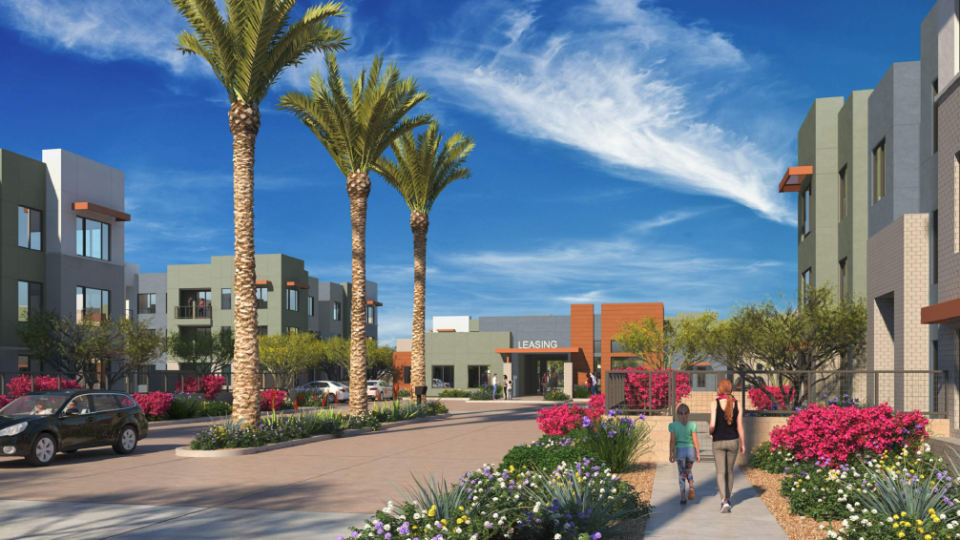When people oppose apartment construction, they go to city hall. Here's why

NIMBY-ism in the Valley:
Not in my backyard| There, not here| Rezoning hurdles| Targeting City Hall | What needs to change?
Fights over housing take place at city hall.
It's where developers, elected leaders and residents come to argue over what, where and whether something should be built. That's because mayors and city councilmembers decide how land is used. It's why, in most Arizona cities, homes sit next to homes and Walmarts next to Home Depots.
So when homeowners object to a proposed apartment complex or other multifamily residential development, they make a beeline for council chambers. The concerns, whether in Buckeye to the west, Chandler to the east or Surprise to the north, are usually the same: traffic, crime, school capacity. Some residents are unabashed, telling elected leaders they don't want poor people living nearby.
Local elected leaders have been on the front line of angry calls, emails and even lawsuits from residents opposed to proposed apartments.
Residential backlash killed an affordable housing complex in Buckeye in 2021. It led to a lawsuit in Surprise and has brought hours of contentious meetings in Chandler.
Developers start locally when building multifamily projects: searching for the right land, applying for proper zoning and, ultimately, seeking approval from the city's council. The process often includes outreach by the developer to a small radius of neighbors who would be affected by the development, which sometimes kicks off backlash. Other times, opposition builds by word of mouth. In Surprise, residents propped up a tent on the side of the road to spread awareness of their displeasure about proposed apartments.
Some elected leaders say they ignore prejudicial comments; some don't believe prejudice plays a role at all. Others argue they have to prioritize those concerns, even if it goes against their personal beliefs, because they should respect the will of the people who elected them.
But the stark reality of Arizona's housing crisis puts city leaders in a tricky spot. The state needs 136,000 more homes for the poorest renters, according to the National Low Income Housing Coalition. Arizona's homeless population ballooned 23% from 2020 to 2022.
Housing advocates, state lawmakers and developers have called on cities to expedite the construction process for apartments and on city leaders to stand firm against NIMBYism.
Cities need to "allow housing to be built," said Owen Metz, senior vice president of Dominium, a national affordable housing developer with apartments in 20 states nationwide.
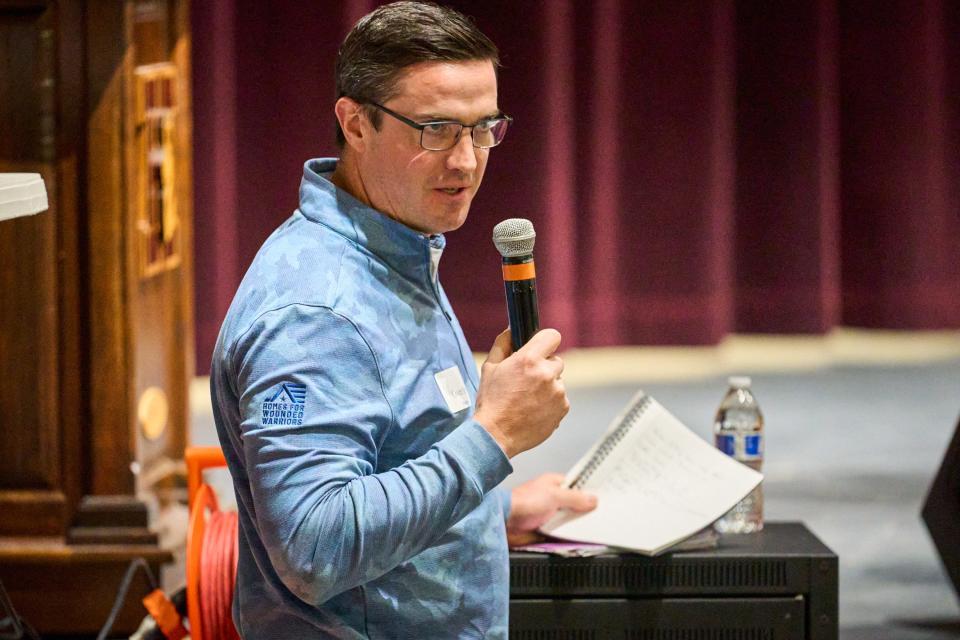
"It's a lot of work," he said. "It's politically, probably, difficult, but it just takes that political leadership and that will to go and do it."
State legislators have taken to more aggressive tactics. In the 2023 legislative session, there were attempts to advance laws to curtail city councils' zoning power, which gives them the ability to reject denser housing developments.
Former state lawmaker and architect Christian Solorio, a Democrat who represented parts of Maricopa, Mojave and La Paz counties, has been part of that battle. Residential zoning should be eliminated, he said. He believes it perpetuates inequality by favoring wealthy residents who have the means to fight more effectively to get their way, he said.
A new — and unpopular — housing type
"In Surprise, for a long time, we only got single-family homes, for years and years, and no multifamily," said Jack Hastings, a councilmember in Surprise. "A lot of residents say, 'We don't want apartments.'"
But, whether residents want it or not, the need is there.
"People want to come here, and that's a great problem to have," he said.
Often, people who oppose a project are those with the loudest voices; people who support or are indifferent about a proposal aren't likely to attend a council meeting about it, he said.
"Sometimes opposition is the most vocal, but they aren't necessarily the majority," Hastings said.
But vocal opposition does make a difference for councilmembers. Hastings was one of three Surprise councilmembers to vote against Dominium's plan for 601 apartment and townhome units. He cited the public's opposition as his reason.
"In our binder, we had 400 pages of emails against the Dominium project," Hastings said. "If I don't vote against something with that much opposition, when am I ever going to vote against something?"
Hastings, who is serving his first full term as a councilmember, said so far he has not had to make many decisions that have been politically unpopular, but he is preparing for the day when he does.
"I think the best way is to be transparent and honest with residents and say, 'You gave me this opportunity to work for you, I'm asking you to trust me.' They may not be happy, but at least they'd understand," he said.
Even with the hope that transparency will lead to understanding, Hastings said an unpopular vote can be intimidating, especially for a newer councilmember in a districted seat like him. In cities with districted council seats, only residents from the district vote on their council representative, unlike in cities that elect their members at large. In a districted seat, losing support from a small number of voters can shift an election significantly.
"I think it's easier to do the longer you've been on council," he said. "It's easy, being a new councilmember, to get genuinely scared. It's their right, but it can be intimidating."
Hastings, who also works as a teacher, said he and his wife rent in Surprise. Like many couples, they have not been able to make the jump into ownership because the housing supply at their price point is so low.
"I really wish there was some more middle ground between affordable housing and a half-million-dollar home," he said.
'There is an important space for public input'
While it might take longer, a dialogue between councilmembers and the public can also significantly improve a project, said Phoenix Councilmember Yassamin Ansari.
"Many times, I do think a project can be made better by public input," she said, pointing to a recent example in her district where community members and her office influenced the proposed apartment redevelopment of a church site near downtown.
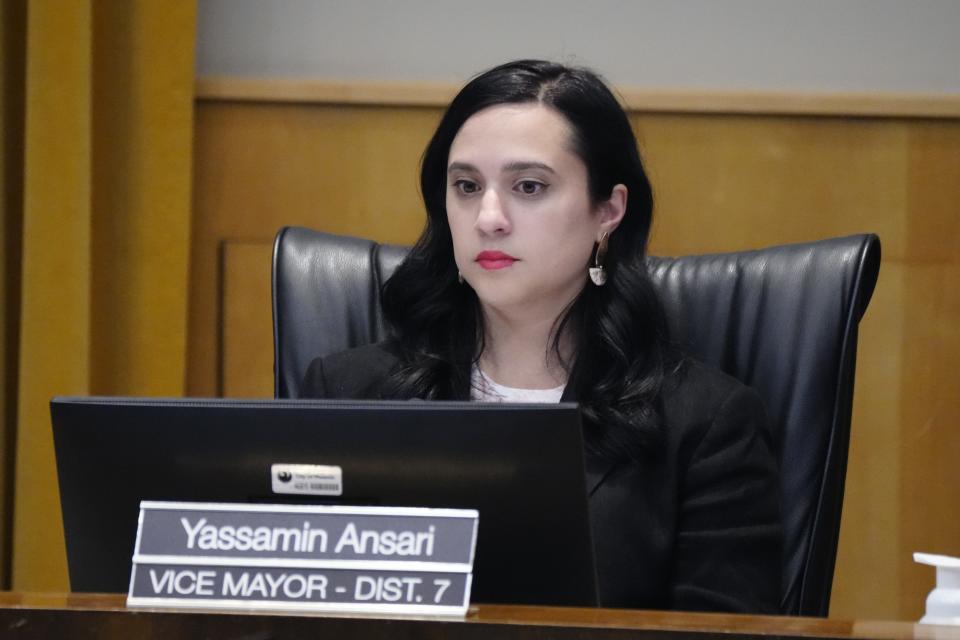
"I think there is an important space for public input," she said.
However, issues about a development's design are different than bias against who will be living there.
"I think where NIMBYism hurts is when neighborhoods treat affordable housing, and all multifamily housing, as some kind of bogeyman," she said.
Ansari, whose district includes parts of downtown, west Phoenix and Laveen, said she is pushing for citywide policy changes that would make developing denser buildings easier in key parts of the city, like along the light rail.
"I do believe we should be building as densely as possible in the urban core," she said.
Getting the community on board
For Tempe Mayor Corey Woods, growing the city's affordable housing supply was a campaign promise that he feels has been generally successful and received well by developers and the public.
"I've not encountered much NIMBYism and pushback when it comes to creating affordable and workforce housing," Woods said. "Those people are few and far between in the city of Tempe."
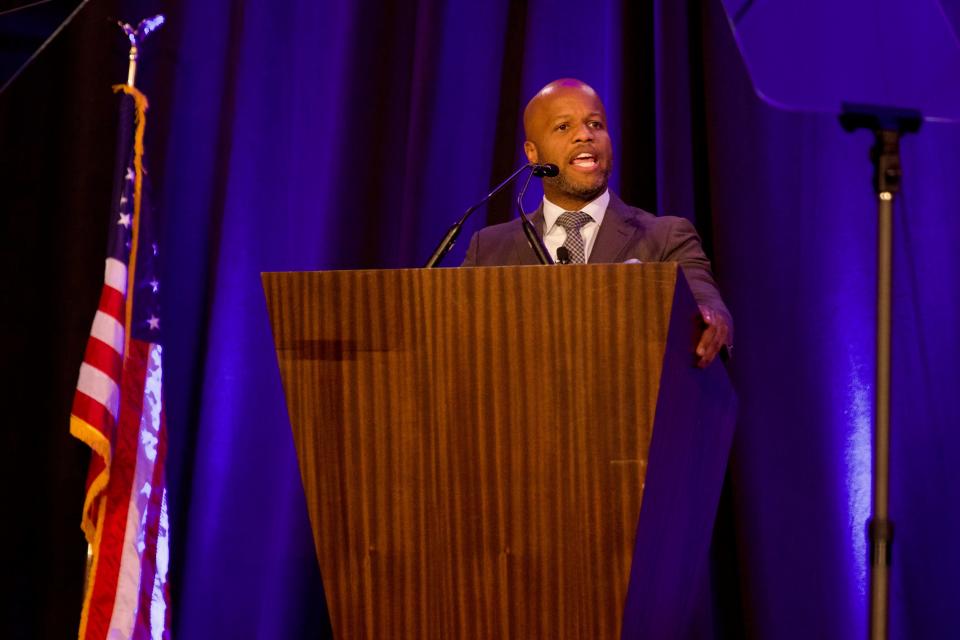
Woods and the council adopted a plan that allows developers to opt in to contribute to a fund to create affordable housing. The fund can be used for a variety of issues, but a major one is to help defray the cost of remediating sites that could be developed but have environmental issues that make it prohibitive for affordable housing developers to build. Cities cannot require developers to contribute to a fund like that, but Woods said most developers building in the city have contributed.
"We are paid by the people to come up with solutions to our most pressing challenges," Woods said of city council leaders.
Some of the acceptance of affordable housing has come over time, Woods said. Around 2011 and 2012, when Woods was a council member, Gracie's Village, an affordable housing development on Apache Boulevard was proposed.
"That project was extremely controversial," Woods said. "It was not the slam dunk that a lot of the affordable housing projects afterward have been."
Like most cities, Tempe also had to fight the stigma about what affordable housing is and who lives there, he said.
"By the time we got to the end of the long, arduous process, we had support," he said. "People saw that the project didn't detract from the neighborhood, but it was a welcome addition. But to get there, you have to stay the course and focus on doing the right thing."
Once the council had shown the public they would support affordable housing, even if it was politically unpopular, and the public had a successful project they could see and interact with, much of the worry dissipated, and people saw the need, Woods said.
"All cities should be diverse and inclusive," he said. "We all need to do our part."
Presenting controversial projects
Adam Baugh, an attorney with the land use and zoning law firm Withey Morris Baugh, said there is never a day that goes by where he does not see organized opposition against a project he is working on.
That opposition has evolved from neighbors circulating a petition on a clipboard to social media groups to having access to advanced cell phone data to geotarget people in an affected area. Opponents often latch on to the same anti-apartment talking points. Many of those arguments are flawed, and misinformation is abundant, but a councilmember's decision can still be swayed.
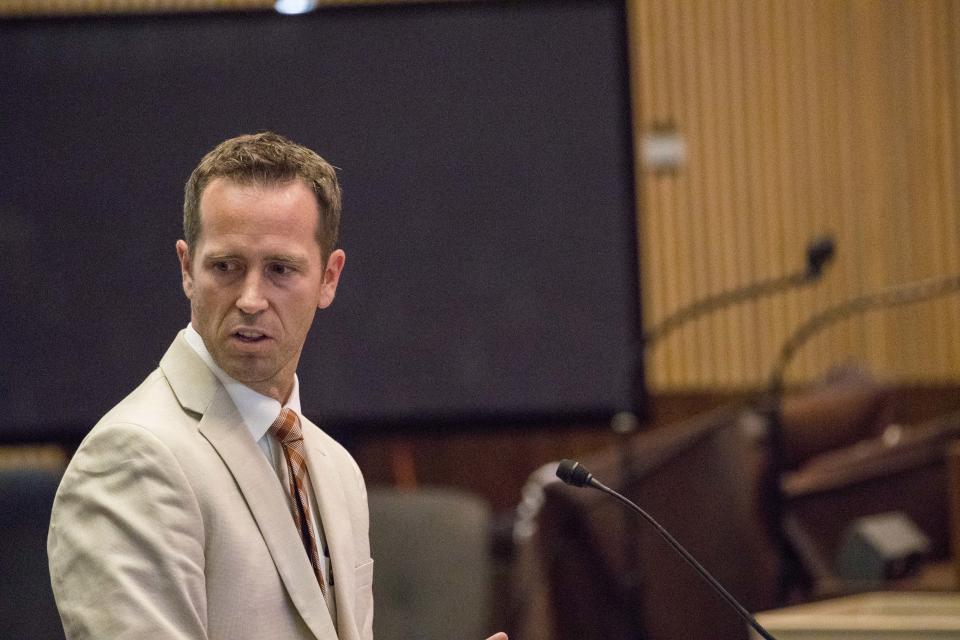
If councilmembers are not getting complete and accurate information for a project, the project's attorney has not done their job, Baugh said.
"We need councilmembers to have greater resolve to stand up for what is right," he said. "Most councilmembers want to find a compromise, and what makes a good councilmember shine is moments like this."
Even though projects are often faced with strong opposition, when developers and neighbors work together, an improved building can be the result.
Neighborhood input into a project is a positive thing, Baugh said.
"Neighbors are a critical part of the process," he said. "Neighborhood input makes projects better."
Nick Wood, an attorney with Snell and Wilmer in Phoenix who often works with apartment developers seeking zoning changes, said he won't take on a project as a client if he does not think it is in a good location and appropriate for the neighborhood.
But just because a developer's attorney feels the project is appropriate does not mean the public will agree.
"I've had projects where the opposition was loud and boisterous," he said. "But I believe that one of the key factors of working with neighbors and organizations that represent neighborhoods is that I believe it's the right project at the right location."
Developers have to be willing to compromise, and Wood said he believes there is a design solution to every issue. Bringing people to the table to agree on something is critical, however, as the need for more housing only grows.
"This screams for a solution," Wood said. "Denying the problem only makes it worse."
Reach the reporters at cvanek@arizonarepublic.com and tseely@arizonarepublic.com.
Next up:
How developers are helping with Phoenix's need for aprtments
Catherine Reagor
Arizona Republic
Neighbors of proposed metro Phoenix apartments are saying "yes in my backyard" to some of the developments, but they have big asks of the builders.
Affordable apartments and other high-density housing are fighting words in many parts of the Valley as the homes draw more strong opposition.
"Not in my backyard" — NIMBY — battles have kept tens of thousands of rental homes from getting built. The fights aren't helping metro Phoenix's extreme housing shortage.
This article originally appeared on Arizona Republic: Most fights over affordable housing play out at city halls. Here's why
